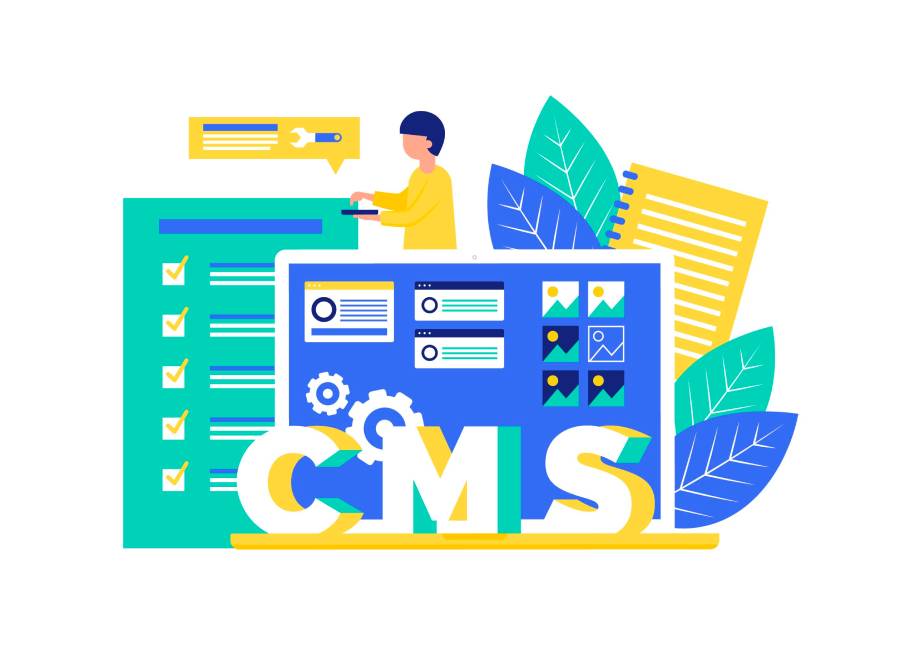Choosing the Right Content Management System for Your Website

Choosing the Right Content Management System for Your Website
In today’s digital age, having a strong online presence is crucial for businesses and individuals alike. Whether you’re a small business owner, a blogger, or an entrepreneur, your website serves as your virtual storefront, representing your brand and offering valuable content to your audience. One of the key components of building and maintaining a successful website is choosing the right Content Management System (CMS). With numerous options available in the market, selecting the perfect CMS can be a daunting task. In this guide, we’ll walk you through the essential factors to consider when choosing a CMS for your website.
Understanding Content Management Systems
Before diving into the selection process, let’s first understand what a Content Management System is and why it’s essential for your website. A Content Management System is a software application that allows you to create, manage, and modify digital content without the need for technical expertise. With a Content Management System (CMS), you can easily publish articles, upload images, manage user accounts, and customize the design of your website. In essence, a CMS empowers you to take control of your website’s content and functionality, enabling you to deliver a seamless user experience to your visitors.
Factors to Consider When Choosing a CMS
Ease of Use:
One of the primary considerations when selecting a CMS is its ease of use. Ideally, you want a platform that is intuitive and user-friendly, allowing you to create and update content without any hassle. Look for a CMS with a simple interface and robust editing tools that streamline the content creation process.
Flexibility and Customization:
Every website is unique, and your CMS should offer flexibility and customization options to meet your specific needs. Whether you’re building a personal blog, an e-commerce site, or a corporate website, choose a CMS that allows you to customize the design, layout, and functionality according to your requirements.
Scalability:
As your website grows and evolves, you’ll need a CMS that can scale with your business. Consider the scalability of the CMS platform and its ability to handle increased traffic, content volume, and functionality enhancements over time.
SEO Features:
Search Engine Optimization (SEO) plays a crucial role in driving organic traffic to your website. Look for a Content Management System (CMS) that offers built-in SEO features such as customizable URLs, meta tags, XML sitemaps, and schema markup. Additionally, ensure that the CMS allows you to optimize your content for target keywords and integrates seamlessly with popular SEO tools.
Security:
Website security is paramount in today’s digital landscape, with cyber threats on the rise. Choose a CMS that prioritizes security and provides robust measures to protect your website against malware, hacking attempts, and data breaches. Look for features such as regular security updates, SSL encryption, user authentication, and access control.
Community and Support:
A vibrant community of developers and users is invaluable when using a CMS. Opt for a platform that has an active community forum, extensive documentation, and reliable customer support channels. Having access to a community of experts can help you troubleshoot issues, seek advice, and stay updated on the latest developments in the CMS ecosystem.
Popular Content Management Systems
Now that you understand the essential factors to consider let’s explore some of the most popular Content Management Systems available in the market:
WordPress:
WordPress is the most widely used CMS globally, powering over 40% of all websites on the internet. Known for its versatility and ease of use, WordPress offers thousands of plugins and themes that allow you to customize your website to your heart’s content. Whether you’re a beginner or an experienced developer, WordPress caters to users of all skill levels.
Drupal:
Drupal is a powerful open-source CMS that is preferred by developers for its scalability and flexibility. It’s an excellent choice for building complex websites with advanced functionality, such as e-commerce platforms, community forums, and enterprise portals. While Drupal has a steeper learning curve compared to WordPress, it offers unmatched customization options and robust security features.
Joomla:
Joomla is another popular open-source CMS that strikes a balance between ease of use and flexibility. It’s suitable for building a wide range of websites, from simple blogs to corporate portals. Joomla offers a user-friendly interface, extensive extension library, and strong community support, making it an attractive option for beginners and experienced users alike.
Shopify:
Shopify is a leading e-commerce platform that is specifically designed for online stores. It offers a comprehensive suite of features, including product management, order processing, payment integration, and marketing tools. With Shopify, you can launch your online store quickly and easily, without the need for technical expertise. It’s an ideal choice for entrepreneurs and small businesses looking to sell products online.
Conclusion
Choosing the right Content Management System is a critical decision that can impact the success of your website. By considering factors such as ease of use, flexibility, scalability, SEO features, security, and community support, you can select a CMS that aligns with your goals and objectives. Whether you opt for WordPress, Drupal, Joomla, Shopify, or another platform, make sure to thoroughly evaluate your options and choose the one that best suits your needs. With the right CMS in place, you can create a professional-looking website that engages your audience and drives results.
Also Read This: Website Development Trends: Responsive Design and Beyond



